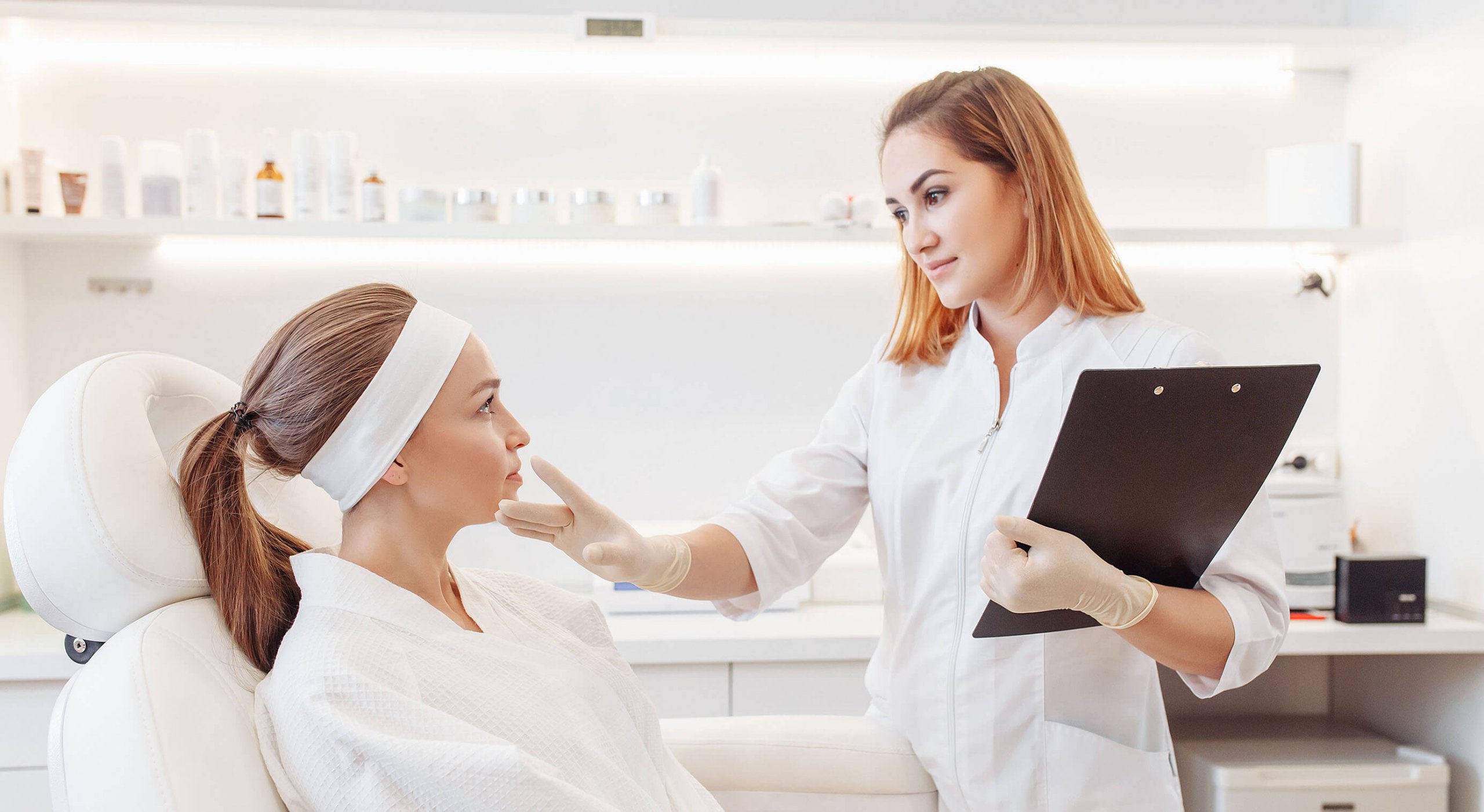ECZEMA TREATMENT IN NORTHWOOD & HARLEY STREET, MARYLEBONE
Eczema is a term which comes from the Greek word ‘to boil’ and is used to describe red, dry, itchy skin which can sometimes become weeping, blistered, crusted, scaling and thickened. The words eczema and dermatitis mean the same thing, and thus atopic eczema is the same as atopic dermatitis.
Atopic eczema is the most common type. It is an extremely common inflammatory condition of the skin. It may start at any age but is most common in children, affecting 1 in every 5 children in the UK at some stage. The term ‘atopic’ is used to describe a group of conditions which include asthma, eczema, and hay fever. These conditions are linked by an increased activity of the allergy component of the immune system.
Book ConsultationHOW CAN ATOPIC ECZEMA BE TREATED?
‘Topical’ means ‘applied to the skin surface’. Most eczema treatments are topical, although for more severe eczema some people need to take ‘oral’ medication (by mouth) as well.
‘Complete emollient therapy’ is the mainstay of treatment for all patients with eczema as the most important part of their treatment – this means regular application of a moisturiser, washing with a moisturiser instead of soap (known as a soap substitute), and use of a moisturising bath oil.
For more severe cases, a topical steroid cream or ointment will usually settle the redness and itching of active eczema.

YOUR CONSULTATION
At the Cedars Dermatology Clinic in Northwood & Harley Street, we draw deeply from the consultation process. Our expert clinicians will listen carefully to understand your skin concerns and aesthetic and medical goals.
- Your medical history is taken into account
- We thoroughly assess your skin
- We listen well to understand your concerns and goals
- We draw up a personalised treatment plan
FAQs about Eczema Treatment
Many different ones are available, varying in their degree of greasiness, and it is important that you choose one you like to use. The best one to use is the greasiest one you are prepared to apply. Moisturisers containing an antiseptic may be useful if repeated infections are a problem. These should be applied several times every day to help the outer layer of your skin function better as a barrier to your environment. The drier your skin, the more frequently you should apply a moisturiser. Aqueous cream was originally developed as a soap substitute. It is often used as a moisturiser but can irritate the skin and make eczema worse. For this reason, it is recommended that aqueous cream is not used as a moisturiser.
Your skin might be infected and a course of antibiotics may be needed. Antiseptics, when applied to the skin alone or as part of a moisturising preparation, can be helpful in stopping the growth of bugs. Incorrect use of antiseptics can, however, irritate the skin and make eczema worse.
Another option is topical immunosuppressants (calcineurin inhibitors): Calcineurin inhibitors, tacrolimus ointment, and pimecrolimus cream may be used when eczema is not responding to topical steroids or in skin sites which are more susceptible to the side effects of steroids such as the face, eyelids, armpits, and groin. These treatments are usually prescribed initially by a dermatologist. Their commonest side effect is stinging on applications, and this usually disappears after a few applications. They are associated with an increased risk of skin infections and, should not be applied to infected (weeping, crusted) skin. A maintenance regimen using intermittent calcineurin inhibitors is licensed for use in patients who have frequent flares of eczema.
Cotton bandages or cotton vests/leggings worn on top of creams can help keep creams in the skin and stop scratching. Sometimes these may be applied as ‘wet wraps’ which can be useful for short periods. For some patients, the use of medicated paste bandages may be helpful, as they are soothing and provide a physical barrier to scratching. If the skin is infected, appropriate treatment is necessary if dressings are being considered. Your doctor or nurse will advise you regarding the suitability of dressings and can also advise on the use of special silk garments which can be helpful for some people.
Atopic people often have allergies, but some allergens are more important for eczema than others.
- Airborne allergens: from cats, dogs, pollen, grass, or the house dust mite more frequently cause flares in asthma and hay fever but in some patients may exacerbate eczema and if this is suspected avoidance measures should be undertaken.
- Food allergies: In some patients, food allergens may aggravate eczema. This is seen more frequently in infants and young children and may be suspected if the eczema is difficult to control or if the child is intensely itchy even without a severe rash. The avoidance of certain foods, after appropriate investigation, may help to control their eczema. A healthy, well-balanced diet is important, especially for children. Foods should not be excluded without advice from your doctor or a dietician.
- Latex (rubber) allergy: is more common in atopic people. The symptoms may be minor, consisting only of itching of the skin after contact with rubber products, or they may be more severe, requiring hospital treatment.
- Contact allergy: creams and ointments used to treat atopic eczema can occur. Let your doctor know if your treatments seem to be making your skin worse.
Other treatments







